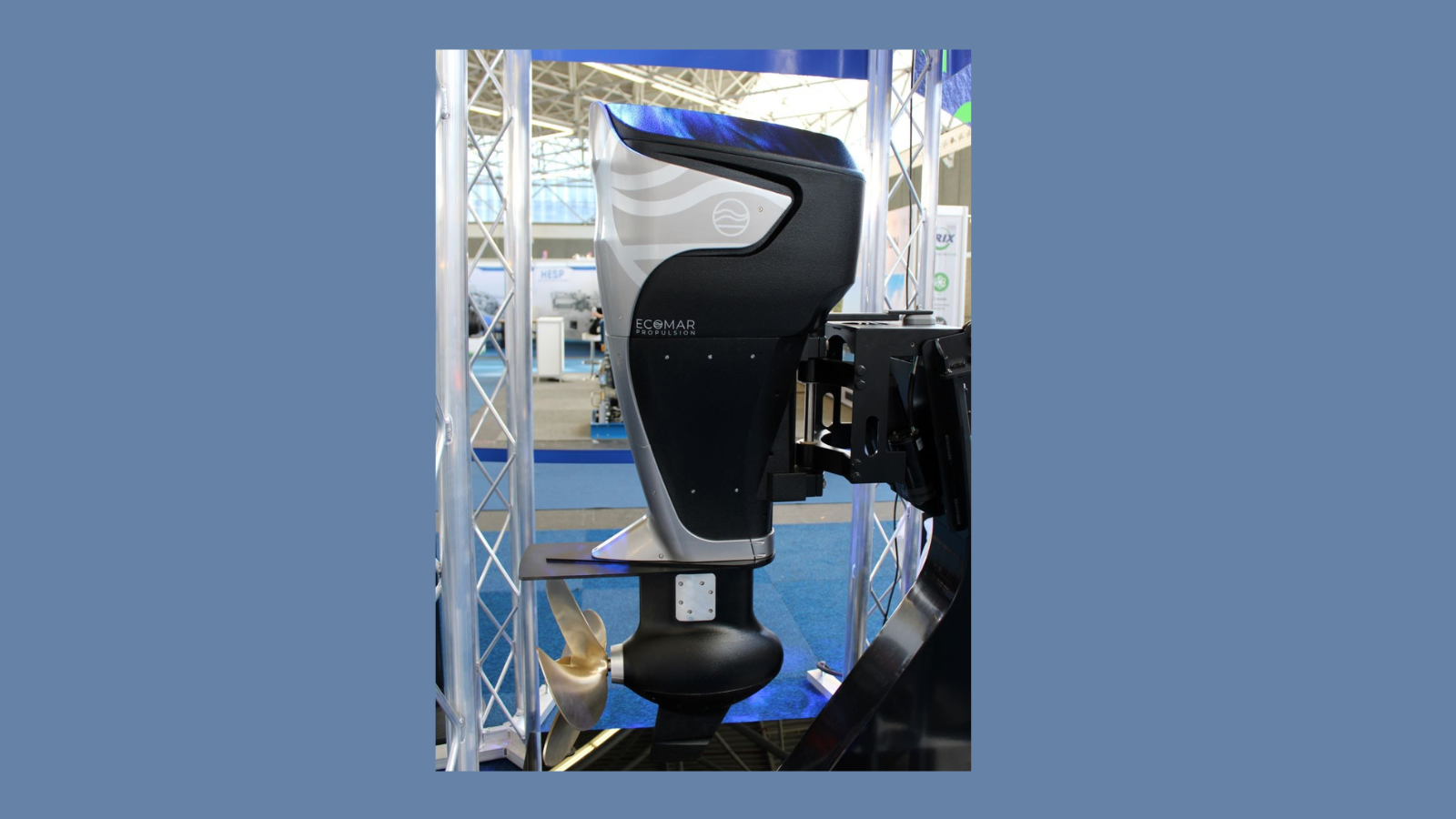Case Study
Ecomar Propulsion

Key Highlights
- Ecomar Propulsion Ltd is involved in the research, development and production of high performance electric and hybrid hydrogen marine propulsion systems. The company produces two products for clean marine vessels; outboard systems and inboard systems powered by battery and hydrogen with a company aspiration of removing 10 million tonnes of toxic exhaust fumes from the marine environment within 10 years.
- Their business challenge arose when a well-recognized market leader in marine hydraulic rams ceased supplying their products leaving a major gap in the supply chain which marine vessels rely on. Ecomar Propulsion wished to explore if any Scottish manufacturers could supply a similar product or indeed design, develop and supply a similar product for Ecomar Propulsion to sell into this market gap.
- Ecomar Propulsion collaborated with the National Manufacturing Institute for Scotland (NMIS) and the University of Strathclyde funded through the Inward Investment Catalyst Fund.
- As a result, Ecomar Propulsion now have an in-depth knowledge of the Scottish manufacturing sector and have been shown the art of the possible to enable them to plan further growth in Scotland and engage with the wider available supply chain.
Partners
University of Strathclyde
Sectors
Aerospace, Aviation & Transport
Energy & Renewables
Engineering and Technology
Regions
UK and International
Background
Ecomar Propulsion Ltd is based in Fareham on the South Coast of the UK and was first registered in 2019. Ecomar Propulsion Ltd is involved in the research, development and production of high performance electric and hybrid hydrogen marine propulsion systems.
Their team of highly skilled engineers and technical experts are working to reduce global emissions by creating high efficiency, high output marine engines and energy storage solutions. The company only works with fully clean electric systems to allow current vessel owners the opportunity to seamlessly transfer to clean marine or new build yards to offer electric vessel options.
Ecomar Propulsion produces two products for clean marine vessels; outboard systems and inboard systems powered by battery and hydrogen with a company aspiration of removing 10 million tonnes of toxic exhaust fumes from the marine environment within 10 years.
In 2021 the company increased its workforce to 8 staff and then to 12 by Jan 2023, with further expected growth. The company has been recognized with several awards from the Maritime UK (Solent) Clean Marine Innovator and Maritime UK Diversity Champion Finalist 2022 through to SETSquared University Network Award for Environmental Impact 2022.
The Challenge
The business challenge for Ecomar Propulsion arose when their manufacturer of hydraulic rams in the Far East ceased supply of their products. This left a significant challenge for Ecomar Propulsion but also an opportunity for the company to look at developing their supply chain within the UK. Another requirement was to ensure the materials being used are as environmentally sustainable as possible from a circular economy perspective.
The Solution
Scottish Enterprise introduced Ecomar Propulsion to NMIS, and as a result of their interest in developing a Scottish supply chain and bringing production to Scotland to overcome a global supply chain issue of electric outboard motors, they were eligible to apply for the Inward Investment Catalyst Fund to support activity. The Inward Investment Catalyst Fund supports businesses not yet located in Scotland but seeking to establish stronger ties with academia here. As well as funding the research and development it provides an opportunity for the company to establish relationships and give insight into other aspects of the Scottish landscape, such as further investment opportunities, supply chains and the skills base to strengthen the case for investing in Scotland.
The teams at NMIS and University of Strathclyde developed their understanding of the design and manufacturing parameters to find replacement components that would be robust enough for the extreme demands of the marine environment. Research and outreach were carried out with companies specializing in hydraulic production in Scotland. Further discussions with selected companies are taking place to develop future alternatives to current suppliers in order to close the gap in the market and provide consistency of supply.
The Next Steps
This project has allowed Ecomar Propulsion to better understand the work of NMIS and the University of Strathclyde and how the skills of the teams can allow Ecomar to plan further growth in Scotland and engage with the wider available supply chain.
Whilst an immediate supplier for marine hydraulic rams was not found, the team have introduced Ecomar Propulsion to several companies which they would not have met had they not taken part in this project. Through meeting senior members of the academic community, potential further opportunities have been identified to explore additional supply chain introductions and manufacturing routes in Scotland for Ecomar Propulsion’s full product range.
Continued collaboration will be facilitated with the Head of Electrification Manufacturing Programmes at NMIS, and allow Ecomar Propulsion and NMIS to engage with Scottish Government and Scottish Enterprise in relation to future facility planning and supply chain partnerships. Additionally, opportunities will be aligned with the University of Strathclyde’s strategic direction in electrification manufacturing, notably in PEMD (power electronics, machines and drives) through DER-IC Scotland (Driving the Electric Revolution Industrialisation Centre), ensuring that expansion of capabilities is informed and driven by industry requirements.
This project benefitted from the Scottish Inward Investment Catalyst Fund. The Scottish Inward Investment Catalyst Fund launched by Interface and the Scottish Government promotes Scotland as a leading destination for inward investment and supports businesses not yet located in Scotland but seeking to establish stronger ties with academia here. As well as funding research and development it provides an opportunity for the company to establish relationships and give insight into other aspects of the Scottish landscape, such as further investment opportunities, supply chains and the skills base to strengthen the case for investing in Scotland.
Learn more about the Scottish Inward Investment Fund


